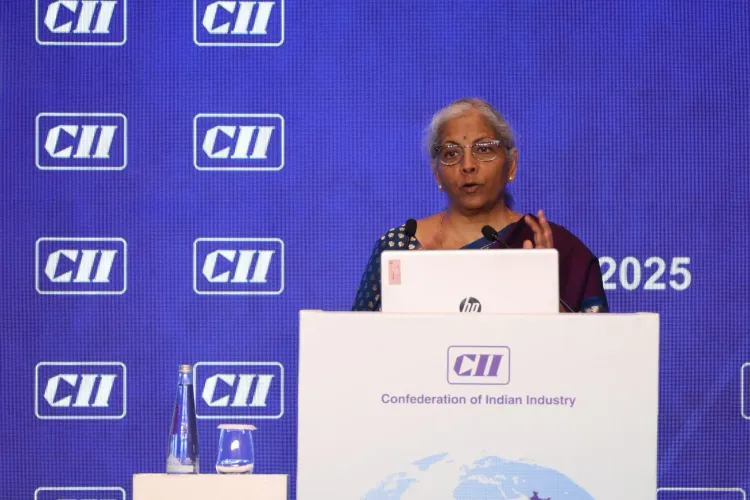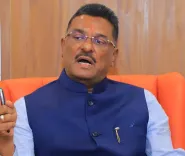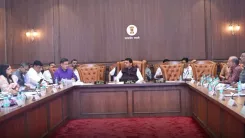Is India the New Hub for Global GCC Talent?

Synopsis
Key Takeaways
- 32% of the global GCC talent pool is in India.
- India has established 1,800 GCCs in the last decade.
- GCCs contributed $68 billion to India's GDP.
- India is home to 42.7% female STEM graduates.
- Government initiatives aim to enhance skill development.
New Delhi, July 14 (NationPress) India has emerged as a top provider of AI talent, currently hosting 32% of the world’s GCC talent pool, 28% of the global STEM workforce, and 23% of international software engineering talent, Finance Minister Nirmala Sitharaman stated on Monday.
While addressing the Special Ministerial Plenary and Report Back session at the inaugural ‘CII GCC Business Summit 2025’ in New Delhi, she highlighted, “We have one of the highest penetrations of AI skills globally.”
In the past decade, seven new IITs and sixteen new IIITs have been established nationwide. India also boasts a significant proportion of female STEM graduates, currently at 42.7%, which is vital because the GCC workforce has about 35% female participation,” she noted to the audience.
She pointed out that India’s Global Capability Centres (GCCs) are transitioning from mere back-office operations to becoming strategic hubs for innovation and leadership.
Since 1985, it took over 30 years to reach 1,000 GCCs, but in just the last decade, an additional 800 have been created. Currently, India is home to 1,800 GCCs, employing 2.16 million professionals and contributing $68 billion to the GDP, with the potential to reach $150–200 billion by 2030.
More than 50% of Fortune 500 companies have established a presence in India, attracted by the country's extensive talent pool, competitive costs, and mature ecosystem.
This growth, she stressed, is based on India’s emergence as a global talent engine.
Additionally, over 1.6 crore youth have been trained under the PM Kaushal Vikas Yojana. “Our vision is clear: we are not just preparing for the future; we are building it,” emphasized FM Sitharaman.
The Finance Minister also highlighted the government's efforts to reduce approval timelines, enhance tax certainty, particularly concerning Advance Pricing Agreements (APAs), and integrate administrative support across ministries, all of which extend to GCCs. She encouraged greater investment in Tier 2 and Tier 3 cities and showcased models like GIFT City as examples of regulatory facilitation. “India must not lose this opportunity,” she concluded, assuring full government support for the GCC growth narrative.
Chandrajit Banerjee, Director General of CII, recognized the government’s leadership in prioritizing GCCs nationally.
He reiterated CII’s commitment to collaborating with the government and industry to ensure that India leads globally in both GCC scale and value, innovation, and strategic capabilities.
Earlier in the day, Sunil Barthwal, Secretary of the Department of Commerce, remarked that manufacturing competitiveness is no longer the sole benchmark for trade among nations.
“As the service sector carves out its niche and GCCs evolve into service hubs for manufacturing firms, FTAs have become vital enablers of the GCC ecosystem,” Barthwal highlighted during one of the sessions.
Reiterating the significance of FTAs, Barthwal noted that the “India-UK” FTA includes a dedicated chapter on innovation, thereby strengthening innovation corridors between partner nations. He added that FTAs ensure regulatory practices and institutional mechanisms between partnering nations can be harmonized and sustained.









